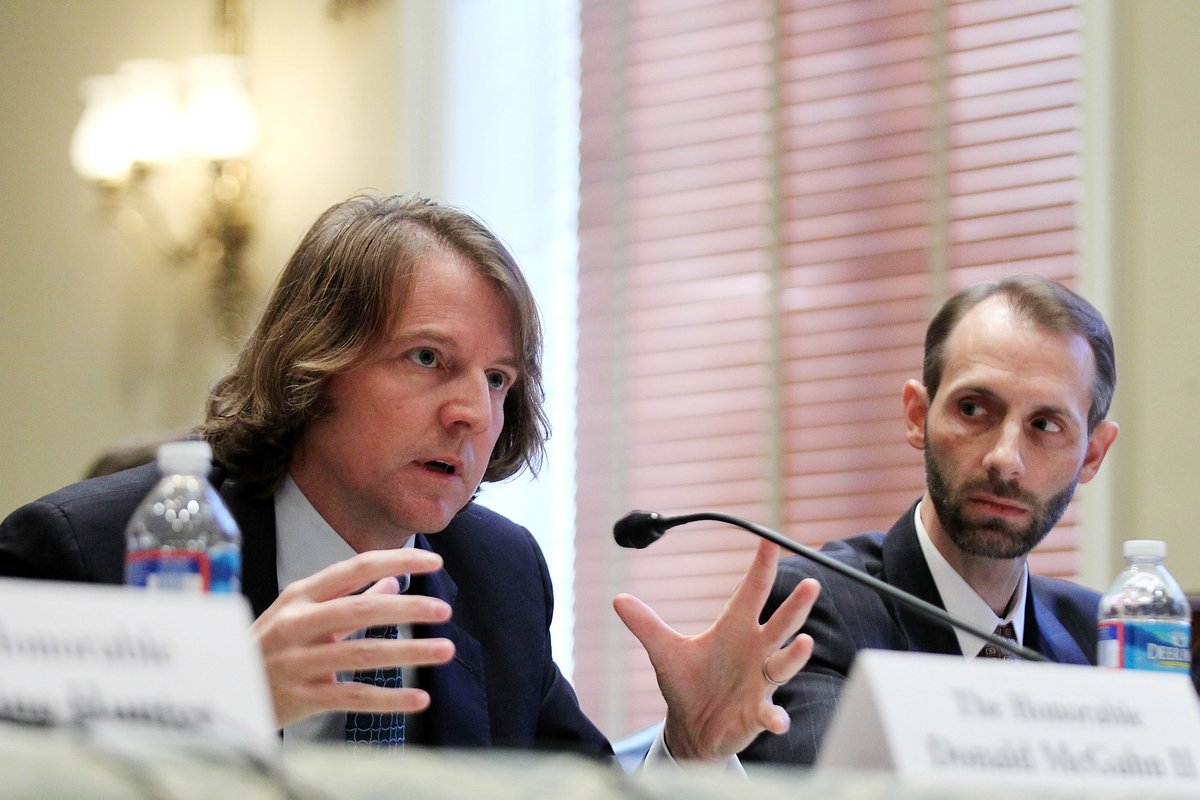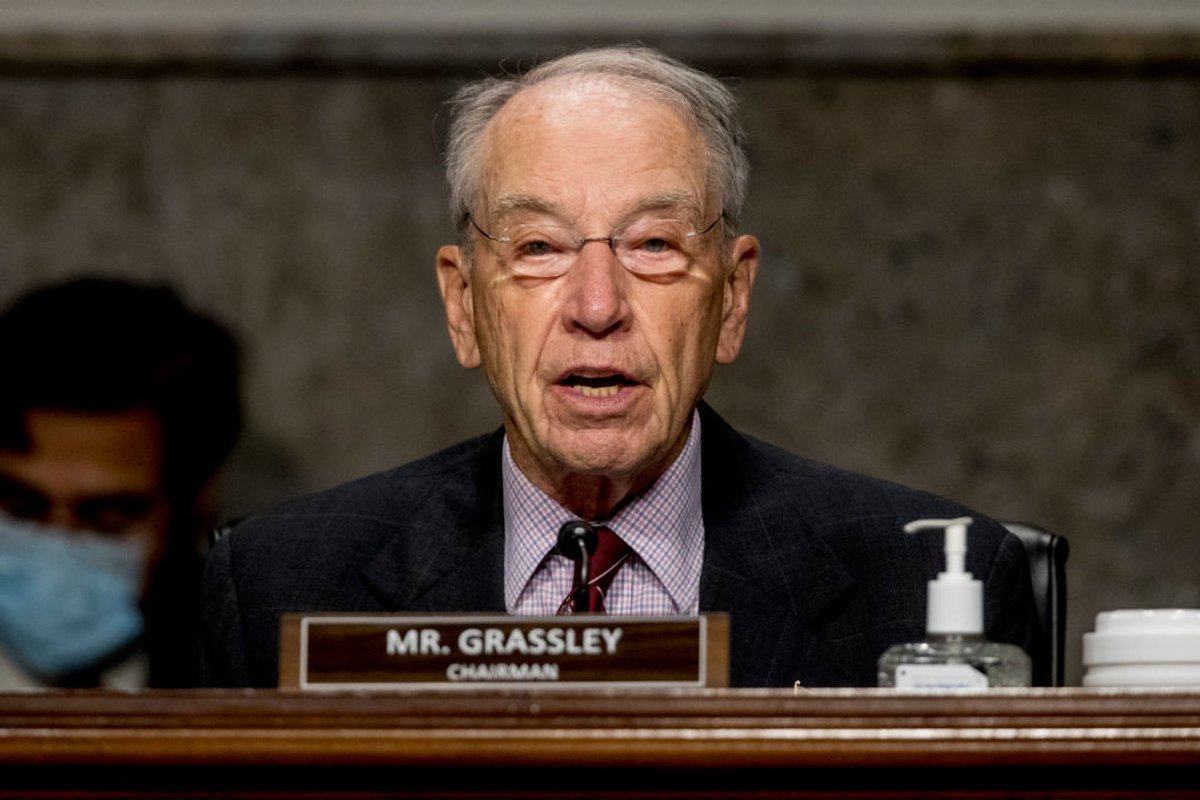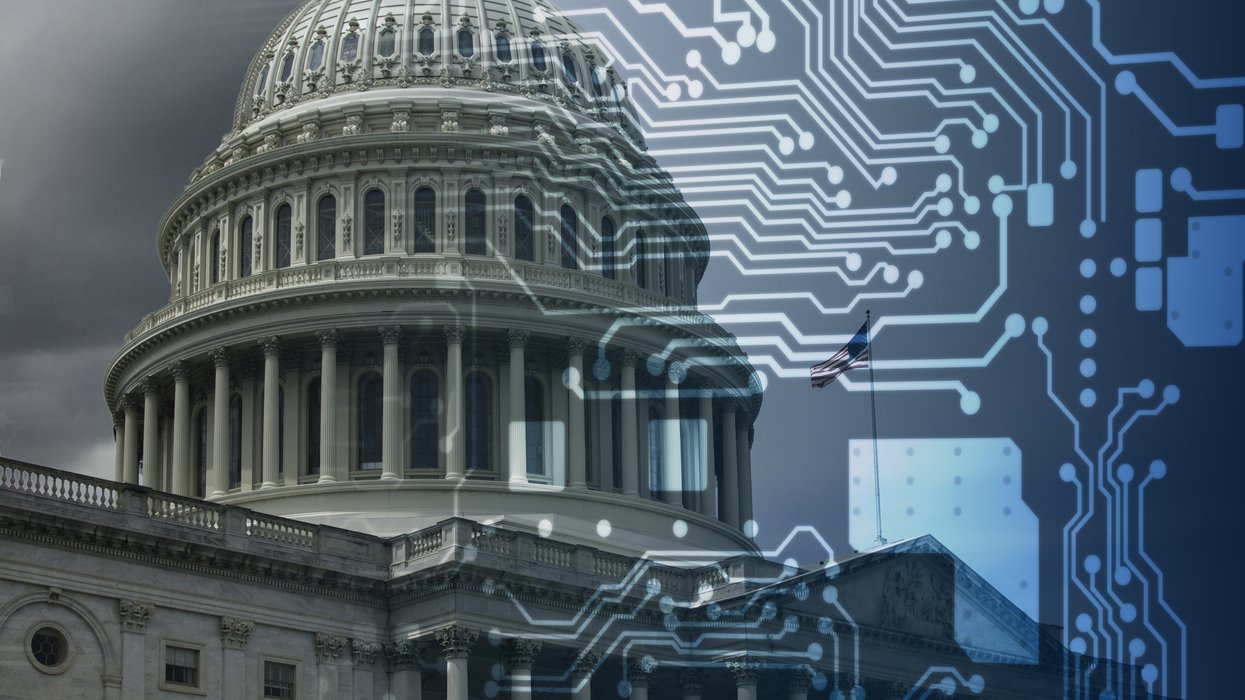Kull is program director of the Program for Public Consultation. Lewitus is a research analyst at Voice of the People. Thomas is vice president of Voice of the People and director of Voice of the People Action.
As the House of Representatives’ new Task Force on Artificial Intelligence considers how the government should address AI issues, such as election-related deepfakes and bias in algorithms, a new survey finds very large bipartisan majorities favor giving the federal government broad powers to regulate AI.
They endorse seven proposals currently under consideration in Congress and the executive branch for regulating AI-generated deepfakes and AI making decisions with the potential for harm. Voters also favor international treaties prohibiting AI-controlled weapons and establishing an international agency to regulate large-scale AI projects.
The survey was conducted by the Program for Public Consultation at the University of Maryland’s School of Public Policy. To ensure that respondents fully understood issues around AI, as in all public consultation surveys, respondents were provided in-depth briefings and arguments for and against each proposal, reviewed by experts on each side of the debates.
Creating new laws for AI-generated deepfakes registered overwhelming bipartisan support. Advancements in AI have led to the ability to easily create hyper-realistic images, video and audio. All three proposals surveyed garnered the support of over eight in 10 Republicans and Democrats. They would:
Sign up for The Fulcrum newsletter
- Prohibit the use of deepfakes in political campaign advertisements, such as to depict an opponent saying something they did not, or to depict an event that did not occur, as proposed by the Federal Election Commission (national 84 percent, Republicans 83 percent, Democrats 86 percent).
- Prohibit the public distribution of any pornographic deepfake that was made without the consent of the person being depicted, as proposed in the Preventing Deepfakes of Intimate Images Act and DEFIANCE Act. (National 86 percent, Republicans 85 percent, Democrats 87 percent)
- Require that all deepfakes which are shared publicly be clearly labeled as such, as proposed in the AI Labeling Act, AI Disclosure Act, and DEEPFAKES Accountability Act. (National 83 percent, Republicans 83 percent, Democrats 85 percent)
Large bipartisan majorities also favor three proposals for closely regulating AI programs that make decisions which can significantly impact people’s lives, including in healthcare, banking, hiring, criminal justice, and welfare, in a similar manner to the way the FDA regulates drugs. There is evidence that some of these programs have violated regulations, shown bias (e.g. by race, gender, age, etc.) and caused material harm to individuals.
More than seven-in-ten voters favor proposals that would:
- Require these AI programs pass a test before they can be put into use, which would evaluate whether they may violate regulations, make biased decisions, or have security vulnerabilities. (National 81 percent, Republicans 76 percent, Democrats 88 percent)
- Allow the government to audit programs that are in use, and require the AI company to fix any problems that are found (national 77 percent, Republicans 74 percent, Democrats 82 percent).
- Require AI companies to disclose information to the government about how the decision-making AI was trained, if requested, to aid with pre-testing and audits (national 72 percent, Republicans 67 percent, Democrats 81 percent).
These proposals come from the Algorithmic Accountability Act, and mirror regulations in the European Union’s Artificial Intelligence Act.
Creating a new federal agency for AI to enforce regulations, oversee development and provide guidance on policy is supported by 74 percent (Republicans 68 percent, Democrats 81 percent). This proposal is based on the Digital Platforms Commission Act.
In the international realm, Americans also support the creation of an international regulatory agency for large-scale AI, modeled after the International Atomic Energy Agency, as proposed by OpenAI, New York University professor Gary Marcus, and U.N. Secretary-General António Guterres. A large bipartisan majority (77 percent) favors the creation of such an international agency that would develop standards for large-scale AI and have the authority to monitor and inspect whether their standards are being met (Republicans 71 percent, Democrats 84 percent).
Also in the international realm, Americans support creating a treaty to prohibit the development of weapons that can use AI to fire on targets without human control – called lethal autonomous weapons – as has been called for by the International Committee of the Red Cross, and the Campaign to Stop Killer Robots. A large bipartisan majority (81 percent) favors the U.S. actively working to establish such a treaty, and creating an international agency to enforce that prohibition (Republicans 77 percent, Democrats 85 percent).
Clearly Americans are seriously concerned about the current and potential harms from AI. Large majorities of Republicans as well as Democrats favor creating robust federal and international agencies to regulate AI and protect people from deepfakes, biased decision-making, and other potential harms from AI.
When respondents evaluated arguments for and against each of the above proposals, the arguments in favor of regulations were found convincing by larger majorities of both Republicans and Democrats. However, majorities also found many of the arguments against convincing, including: regulation will stifle innovation; prohibitions violate the freedom of expression; and international agencies may abuse their power.
Americans are wary of government regulation, but they are clearly more wary of the unconstrained development and use of AI.
The survey was fielded online February 16-23, 2024 with a representative non-probability sample of 3,610 registered voters provided by Precision Sample from its larger online panel. The confidence interval varies from +/- 1.4 to 1.8 percent.
Read the full report and the questionnaire.




















